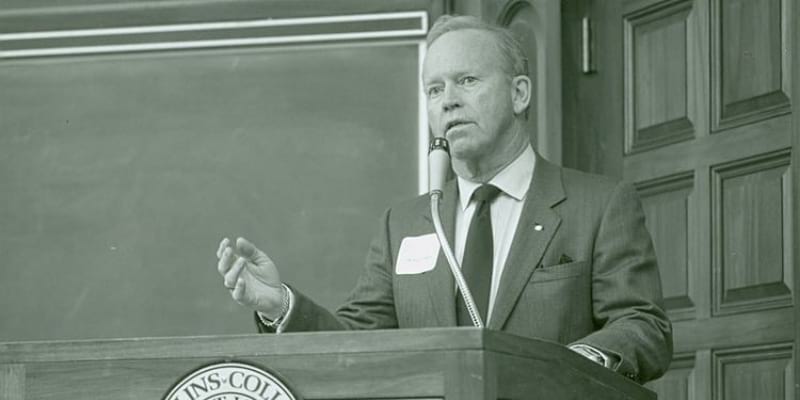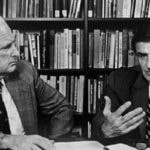Philip Crosby biography, quotes and books

Philip Crosby (Philip Bayard Crosby; June 18, 1926 – August 18, 2001) was a businessman and author and is recognized as an influential quality guru. He is best known for the quality management concepts Quality is Free, Zero Defects, and the Four Absolutes of Quality. He additionally wrote several books such as ‘Quality is Free: The Art of Making Quality Certain’ and ‘Quality Without Tears: The Art of Hassle-Free Management.’ This article covers his biography, quotes and publications.
Philip Crosby biography
Philip Crosby was born in West Virginia in the United States. He studied pediatrics in his early years and obtained his degree from Case Western Reserve University. After serving the navy during World War II, Philip Crosby gained extra income by working in a manufacturing plant as an assembly worker. He continued the job and became more experienced in assembly work and identified that businesses should better focus on doing things right the first time.
As a consequence, Philip Crosby learned by experience how to prevent problems in manufacturing plants. Since his talent was moreover demonstrated in the factory, he got promoted to an engineer at the Crosley Corporation in Indiana.
His contribution to Qualtiy Management
As he gained additional experience, from 1957, Philip Crosby continued his career by working as a quality control manager for the Martin Marietta Corporation for about ten years.
In this job, Philip Crosby was responsible the quality of the Pershing missile project, a solid-fueled two-staged ballistic missile that was to replace the previously used missiles in the United States but also the ones from some European countries.
Philip Crosby’s position as a quality control manager opened the door to his quality career path. From 1965, he next worked as a director and vice president for the ITT Corporation.
During this period, in 1979, he published ‘Quality is Free: The Art of Making Quality Certain’, a book in which he presents a case study showing how the ITT Corporation saved million dollars by applying his quality concepts. The book is translated in more than 15 languages, and more than 2.5 million copies have been sold.
He held this position for more than a decade and then decided to establish his own company, the Philip Crosby Associates (PCA) in Florida. The PCA is a quality management consulting firm that focusses on areas including quality management, process reengineering, managerial skill development, and process management.
Crosby learned in his experience that by preventative measures and implications in business processes quality will be guaranteed, it saves costs, and thus, increase profits. This way of doing business was implemented at Philip Crosby Associates. The company only focused on preventive techniques, and within ten years, he employed approximately 300 people around the globe.
The company’s success was recognized by many large national as international corporations such as Motorola, Chrysler, and General Motors, and soon all these companies visited Phillip Crosby to learn about his quality management approach.
Crosby recognized that his experience was highly valued. In 1991, he sold Philip Crosby Associates to establish Career IV, an organization dedicated to sharing quality control knowledge with future executives. The company has provided quality management education and training services to many organizations including Tell Tool and ETCO.
In 1997, he also established Philip Crosby Associates II, a teaching center in the field of Quality Control and Quality Assurance. The organization expanded to more than 20 countries around the globe.
Continuous improvement and Zero defects
His contributions to the field of quality have helped many organizations. He stated that companies should always attempt to have zero defects since this goal will help organizations continuously improve.
Zero defects is a quality and performance standard which states that not a single defect is acceptable in manufacturing.
The management of every producing organisation should be committed to quality control at its finest.
According to Phillip Crosby, the definition of quality is conformance to requirements, and quality is measured by PONC (the Price of Non-Conformance).
Crosby also argued that the costs of poor quality should be measured and that quality should be defined as certain specifications set by management which are based on customer’s need and wants. He also was convinced that every employee should develop their own improvement goals regarding all aspects of the function.
In his life, he married Peggy Davis Crosby. They have three children, one son, and two daughters, Phillip Junior, Phylis, and Leyla. The couple has six grandchildren. He spent a lot of time with his family next to his professional career.
Unfortunately, Philip Crosby died due to a respiratory failure, but he managed to publish several books including ‘Quality Is Still Free: Making Quality Certain in Uncertain Times’, ‘The Absolutes of Leadership’, and ‘Quality and Me’.
Famous quotes
- “Quality is the result of a carefully constructed cultural environment. It has to be the fabric of the organization, not part of the fabric.”
- “Making a wrong decision is understandable. Refusing to search continually for learning is not.”
- “Quality has to be caused, not controlled.”
- “In a true zero-defects approach, there are no unimportant items.”
- “The audience only pays attention as long as you know where you are going.”
- “Eliminating what is not wanted or needed is profitable in itself.”
- “Slowness to change usually means fear of the new.”
- “You have to lead people gently toward what they already know is right.”
- “Being convinced one knows the whole story is the surest way to fail.”
- “The great discoveries are usually obvious.”
- “It is always cheaper to do the job right the first time.”
- “The cost of quality is the expense of doing things wrong.”
- “If we deliver on time, but the product has defects, we have not delivered on time.”
Books and Publications by Philip Crosby et al.
- 2012. Characteristics and techniques of successful high-technology project managers. International Journal of Project Organisation and Management, 4 (2), 99-122.
- 2005. Crosby’s 14 steps to improvement. Quality progress, 38(12), 60-64.
- 2000. Creating a useful and reliable organization: The quality professional’s role. In ASQ World Conference on Quality and Improvement Proceedings (p. 720). American Society for Quality.
- 1997. The absolutes of leadership (Vol. 34). Jossey-Bass.
- 1997. Quality management. QUALITY AND RELIABILITY, 53, 1-6.
- 1997. Keeping neat records of noncompliance is not quality. Quality Progress, 30 (5), 79.
- 1996. The leadership and quality nexus. The Journal for Quality and Participation, 19 (3), 18.
- 1996. Quality is still free: making quality certain in uncertain times. McGraw-Hill Companies.
- 1995. Philip Crosby’s Reflections on Quality: 295 inspirations from the world’s foremost quality guru. McGraw-Hill.
- 1994. A license to do quality?. The Journal for Quality and Participation, 17 (1), 96.
- 1993. Quality leadership. Executive Excellence, 10, 3-3.
- 1992. Zero defects. Quality Progress, Febr.
- 1992. The next effort. Management Review, 81 (2), 64-65.
- 1992. 21st century leadership. The Journal for Quality and Participation, 15 (4), 24.
- 1991. Criticism and support for the Baldrige Award.
- 1991. By George, I Think I’ve Got It!. HR Focus, 68 (12), 23-23.
- 1990. The eternally successful organization: The art of corporate wellness. NAL Trade.
- 1990. Let’s talk quality: 96 questions you always wanted to ask Phil Crosby. Plume.
- 1990. Leading, the art of becoming an executive. New York: McGraw-Hill.
- 1989. Working like a chef. Quality, 28(1), 24.
- 1989. Quality Control. McGrawHill.
- 1989. How goes the quality revolution? Journal for Quality and Participation, 12 (1), 28-31.
- 1989. Crosby talks quality. The TQM Magazine, 1(4).
- 1987. What are requirements. Quality Progress, 20 (8), 47-47.
- 1987. A Journey for Quality Improvement. Krishna, SY/Buehler, VM.
- 1987. Quality, Productivity and Innovation: Strategies for Gaining Competitive Advantage. New York (Elsevier), 285-299.
- 1986. The art of hassle-free management.
- 1986. Running things: The art of making things happen. Plume.
- 1986. Management and policy. Quality Management Handbook, Hitchcock Publishing Company, Wheaton, Illinois.
- 1985. The quality man. Philip Crosby Associates.
- 1985. Quality without tears. New American Libra
- 1985. Quality improvement through defect prevention. Philip Crosby Associates.
- 1983. Don’t be defensive about the cost of quality. Quality.
- 1982. One Point of View: Quality Assurance: The Management of Quality. Research Management, 25 (4), 10-12.
- 1979. The art of making quality certain. New York: New American Library, 17.
- 1979. Quality is free: The art of making quality certain New York. NY: McGraw.
- 1972. Consumer preference: Good, better, best. In National Academy of Engineering (Ed. J Product Quality, Performance, and Cost: A Report and Recommendation Based on Symposium and Workshops Arranged by the National Academy of Engineering, Washington, DC: National Academy of Engineering (pp. 23-36).
- 1969. The strategy of situation management: a new and unique approach to managing personal and business problems more effectively. Industrial Education Institute.
- 1967. Cutting the Cost of Quality: The Defect Prevention Workbook for Managers. Boston: Industrial Education Institute.
How to cite this article:
Zeeman, A. (2019). Philip Crosby. Retrieved [insert date] from Toolshero: https://www.toolshero.com/toolsheroes/philip-crosby/
Original publication date: 03/26/2019 | Last update: 01/31/2024
Add a link to this page on your website:
<a href=”https://www.toolshero.com/toolsheroes/philip-crosby/”>Toolshero: Philip Crosby</a>











